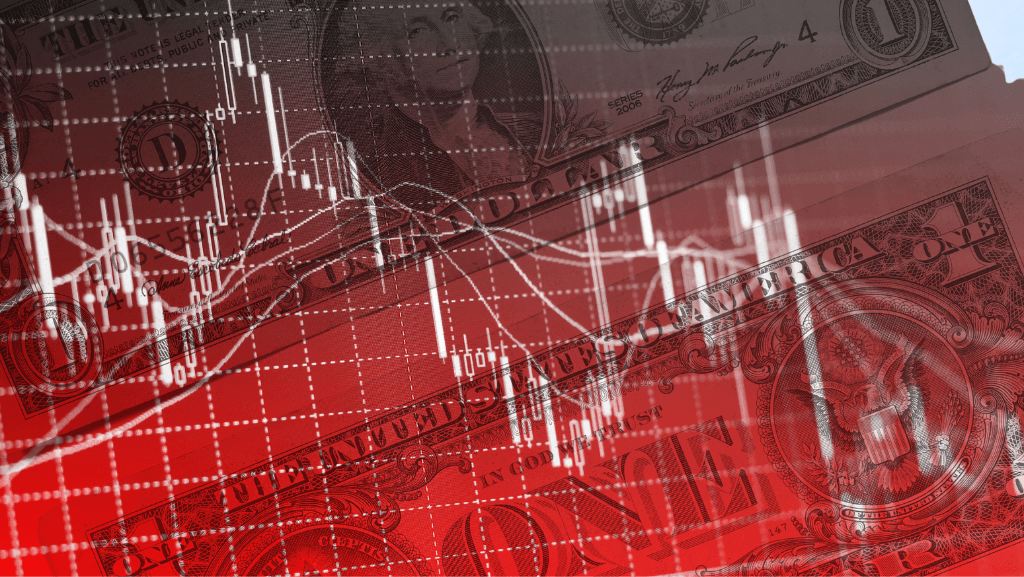
Dollar Slips for Fifth Month Amid Tariff and Fiscal Turmoil
U.S. currency struggles for the fifth straight month as tariff rulings, inflation, and debt concerns rattle markets.
The U.S. dollar is on track to record its fifth consecutive monthly decline, as global financial markets reel from the combined impact of trade policy instability, fiscal uncertainty, and tepid economic indicators. Analysts cite growing apprehension over President Donald Trump’s tariff strategy, alongside inflation data and sovereign debt pressures, as critical factors influencing the greenback's performance.
As of May 30, the dollar index, which tracks the U.S. currency against six major peers, edged higher by 0.16% at 99.416, but remains down 0.25% for the month, continuing its worst monthly run since mid-2020.
Tariff Reinstatement Adds Legal and Economic Uncertainty
The latest round of volatility follows a federal court ruling that temporarily reinstated a sweeping set of tariffs introduced by the Trump administration, reversing an earlier judicial block issued just a day prior. The legal ping-pong has created fresh confusion among investors, legal experts, and trade partners alike.
President Trump, reacting to the setback, stated on Thursday that he expects the U.S. Supreme Court to eventually rule in favour of the tariffs. White House officials added that the administration could explore alternative legal mechanisms under presidential authority to enforce trade measures.
Such legal volatility has heightened scepticism about the reliability of U.S. trade policy, pushing investors to diversify away from dollar-based assets.
Inflation and Debt Worries Intensify Dollar Pressures
Investors are now closely watching the release of the Personal Consumption Expenditure (PCE) index, the Federal Reserve's preferred inflation measure, which is expected to show a 2.2% year-over-year increase for April, according to a Reuters poll. This is a slight moderation from the 2.3% rate reported in March.
Despite inflation tracking slightly above the Fed’s 2% target, market sentiment remains cautious amid signs of a potential economic slowdown. Weekly jobless claims and GDP data released Thursday did little to boost confidence, with concerns about stagflation and rising debt levels in the U.S. gaining ground.
Notably, recent auctions of longer-term U.S. Treasury bonds saw weak demand, reflecting broader investor unease over the country's fiscal outlook. Japan, facing similar concerns, also saw muted appetite for sovereign debt.
Currency Markets React Globally
The euro rose slightly to $1.1378, buoyed by expectations of softening inflation in Germany. Meanwhile, the Swiss franc remained stable at 0.8225 per dollar, marking its fifth straight month of gains against the greenback.
In contrast, the Japanese yen firmed 0.3% to 143.80 per dollar following Tokyo inflation data, which showed core inflation hitting a two-year high. This has renewed speculation that the Bank of Japan may consider interest rate hikes, despite concerns about the fragility of Japan’s post-COVID recovery.
However, the yen remains on course for a monthly loss against the dollar, its first of 2025.
Emerging Markets Benefit from Dollar Weakness
While the dollar has struggled, emerging market currencies have rallied. The MSCI index tracking these currencies rose 2.2% in May, its largest monthly gain since November 2023. Investors are increasingly turning to emerging markets as alternatives amid doubts over the U.S.'s monetary and fiscal trajectory.
Legal analysts are also watching whether the continued volatility in U.S. policy, particularly the legal foundations of tariff implementations, could trigger challenges under international trade agreements. Already, several WTO-member states have called for dispute resolution panels to assess the legality of Trump-era tariffs under global trade law.
What Lies Ahead?
With the Trump administration's July 9 deadline for full tariff enforcement approaching, legal observers anticipate a flurry of constitutional and administrative law challenges. The use of presidential powers to circumvent court rulings could raise significant separation of powers concerns, especially if countered by legislative or judicial checks.
Additionally, inflationary effects from these tariffs could force the Federal Reserve into a difficult position, potentially accelerating or altering its monetary policy trajectory.
Final Word
As the U.S. dollar navigates a confluence of inflation, legal upheaval, and fiscal imbalance, its weakening trend may persist unless decisive policy clarity emerges.
For now, traders, economists, and legal analysts remain on alert as the PCE data, tariff rulings, and monetary policy updates unfold in a tightly wound global financial environment.
For any enquiries or information, contact info@thelawreporters.com or call us on +971 52 644 3004. Follow The Law Reporters on WhatsApp Channels.